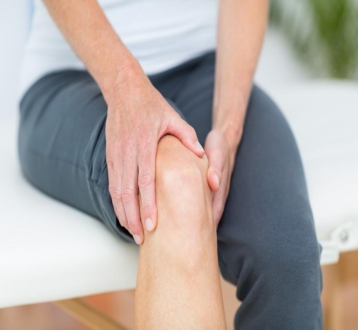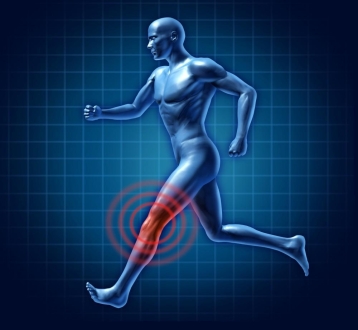
Like most people, you probably respond to unexplained joint pain by popping a pill and trying to get on with your day. It is easy to chalk pain up to sleeping awkwardly, overdoing a workout, or just getting older. There is one joint, however, that you should definitely listen to when it’s trying to get your attention: your shoulder.
Shoulder pain with no obvious injury and significant stiffness in the joint can be a condition called frozen shoulder. It is extremely painful and debilitating, and while it does generally resolve, healing can take years and full range of motion may never be recovered.
The symptoms of frozen shoulder appear gradually and increase in severity over time. As the condition progresses, it often leads to difficulties with everyday tasks like washing and dressing.
It can cause prolonged sickness absence, driving impairment, and severely affect quality of life. It is important that you seek diagnosis and treatment right away for any shoulder pain that lasts more than a few days.
The symptoms of frozen shoulder
Frozen shoulder lasts on average 30 months, and progresses through three distinct phases.
- Freezing (lasts 2-9 months): The first symptom of this phase is usually pain and difficulty sleeping on the affected side followed by increasing stiffness and loss of range of motion. You will likely have no history of injury.
- Frozen (lasts 4-12 months): This stage sees improvement of your pain but worsening of the stiffness in your joint. It is common for muscle wastage to occur around the joint because you are unable to use it.
- Thawing (lasts up to 3 years): Your pain and stiffness will gradually improve until your joint returns to normal, though it may never be truly as it once was.
What causes frozen shoulder?
Pinpointing an exact cause for frozen shoulder is difficult. It is believed that the connective tissue surrounding the joint becomes inflamed, causing scar tissue to develop and leading to stiffness. There are certain risk factors connected with developing the condition.
People with autoimmune diseases like diabetes and thyroid conditions are at greater risk. Injuries or surgeries that limit mobility in an arm (like an arm fracture, rotator cuff injury, or mastectomy) can cause frozen shoulder. It is rare to develop the condition before age 40, and frozen shoulder is more common in peri- and post-menopausal women.
Diagnosis and treatment options
Frozen shoulder is a clinical diagnosis. That means the diagnosis is based on Dr. Drew’s examination and his interpretation of your history. There are no tests that confirm frozen shoulder, but Dr. Drew will run a range of tests, including blood tests, MRIs, and X-rays, that will either confirm or exclude other conditions.
There are multiple treatment options available, and they vary depending on your current stage of the condition. In the freezing phase, treatments include prescribing pain relief and educating you on lifestyle adjustments.
Steroid injections have been shown to be helpful in reducing pain and inflammation, particularly when started early. Studies have shown that the most effective course of treatment is a timely combination of physiotherapy and steroid injections.
Once the freezing stage has progressed, treatment with steroids is ineffective. The next options available to you are usually surgical. Dr. Drew attempts to manipulate the joint under general anesthesia, and if all else fails, he may surgically release the capsule around the joint.
Early intervention can improve outcomes
If you seek treatment for frozen shoulder in the early stages, the chances of you escaping with the shortest recovery time and least invasive treatment options are greatly increased.
If you think your shoulder might be trying to tell you something, Dr. Otis Drew can help confirm your diagnosis and provide you with a treatment plan that could save you years of suffering. Call our office in Lafayette, Louisiana, today at 337-240-9370 or book an appointment online.










